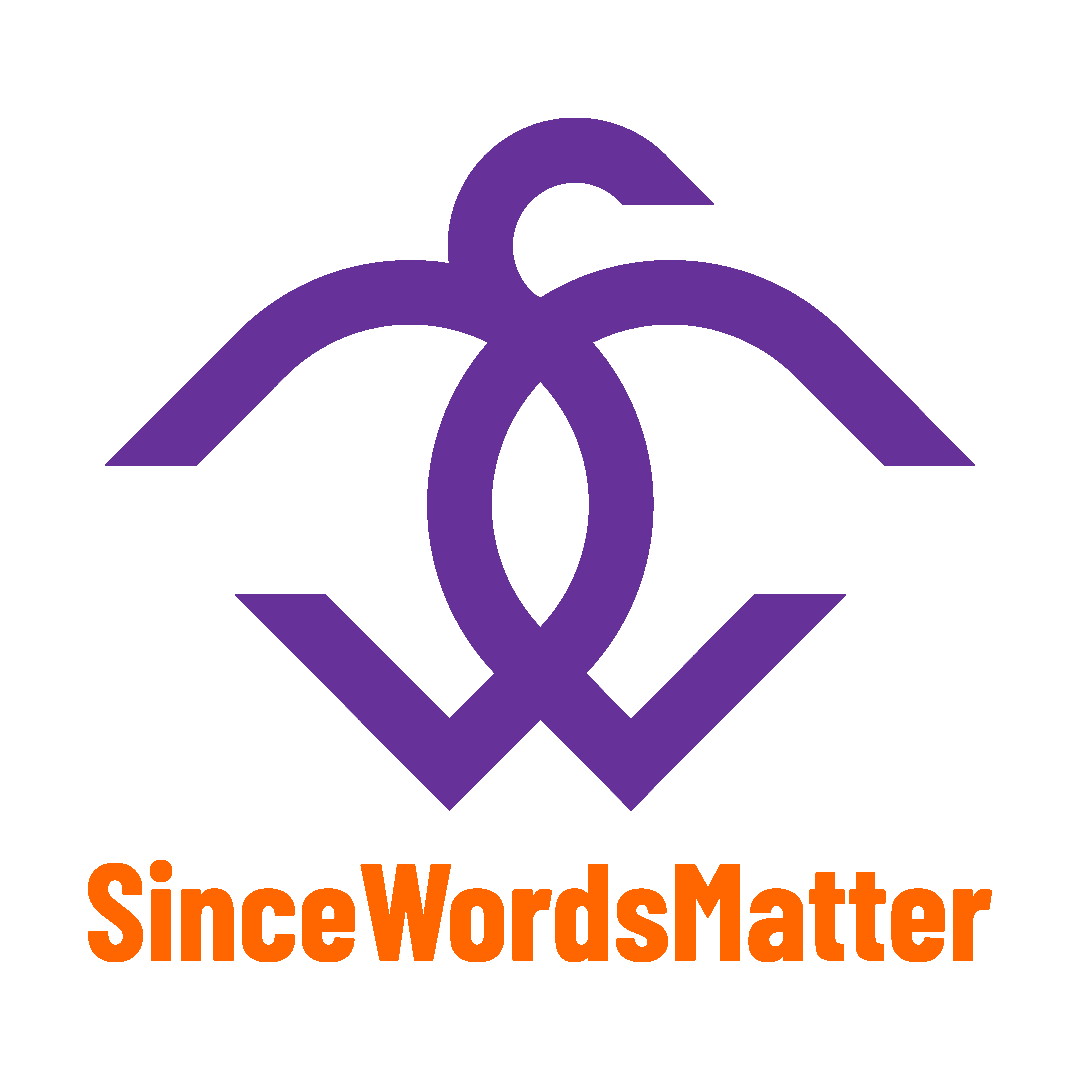Last Update on:

You must appear in a foreign court of law. You already have enough on your mind, trying to figure out why you were called in and what you can do to clear your name. But there’s also a major problem: how are you supposed to communicate with them if you don’t speak their language? Utilizing legal interpreting solutions is a quick and easy way to fix this problem.
The use of interpreting in legal settings has a long history. In fact, simultaneous interpretation through microphones and headsets was first implemented at the Nuremberg Trials to ensure that everyone, even the Nazis, could follow along with the proceedings. However, you may be one of the millions of people who have no idea what legal interpreting is or how it can benefit society.
Here, we’ll start with a definition of legal interpretation. Next, we’ll examine the significance of having an interpreter present in a legal setting. If you need assistance with legal interpreting, continue reading the following section. In it, you’ll learn what to look for in a reliable legal interpreting service provider.
Table of Contents
- What is legal interpretation?
- Why is legal interpreting important?
- What are the features of the best interpreting service?
What is legal interpretation?
Legal interpreting is a subset of the larger field of interpreting that facilitates communication between speakers of different languages in a legal or paralegal setting, where sensitive, high-stakes, and potentially liberating matters are discussed. All sorts of court and legal proceedings fall under the umbrella of “the legal setting,” which also includes interactions between clients and attorneys, police interrogations and interviews, and other similar situations.
Interpreting is the process of conveying meaning from one language to another by orally converting the speaker’s words, feelings, and tone into the target language. An interpreter listens to a speech once in the SL and then delivers the translation aloud (almost instantly) into another language. However, the interpreting process is a little more complicated in the legal field.
To an outsider, legal terminology may as well be a completely different language, showing legal interpreting is more challenging than other types of interpreting. Moreover, there is no interpreter’s booth where the interpreter can operate in peace and quiet, as is the case with conference interpreting. The client is also rarely fluent, and due to worry and panic, the client is typically incoherent.
The legal interpreter’s role also requires them to be objective regarding the subject matter and impartial toward the parties concerned. This is challenging since the client may view the interpreter as a friend because they share a common language.
Unlike in other interpreting settings, a court interpreter typically works solo, and their shifts last only as long as their client’s court appearance. Contrary to conference interpreting, where one interpreter can take a break while the other works, the work never stops in legal interpreting. In addition, a court interpreter’s duties extend beyond simple oral translation in the court. A legal interpreter is sometimes required from the initial interview with the client following their arrest—which may occur at inconvenient hours—throughout the entire legal process.
Maintaining a sense of fairness and justice in the courtroom relies on clear and precise communication. However, problems with communication due to a lack of a common language can arise frequently in court processes, especially when witnesses or defendants are not native English speakers or are deaf or hard of hearing. In and out of court, legal proceedings often rely on oral communication between parties, and court interpreting ensures that everyone involved can understand what is being said.
The services of a court interpreter are required during any judicial action, including arraignments, motions, arbitrations, preliminary hearings, pre-trial conferences, depositions, trials, and sentencing hearings. They also work in settings outside of the court, such as law firms, police stations, and detention centers. They are responsible for providing a full and accurate interpretation for both highly educated people and those with very limited language skills. Interpreters in court help defendants and their attorneys communicate with each other and with law enforcement.
The interpretation provided by court interpreters must be accurate and comprehensive; summarizing or leaving out speech flaws like stuttering or a lack of fluency is not permitted. Legal interpreters have to keep up with the speaker’s register, ranging from formal and legal when interpreting lawyers and judges to scientific and technical when translating experts to unclean, vulgar, colloquial, and criminal slang when interpreting gang or drug dealer discourse.
The interpreter’s role does not include explaining their translation. They must maintain complete objectivity in their work for the court system and let the lawyers explain things. Since they are liable for a thorough and accurate portrayal, they must fix any faults they make as soon as they become aware of them.
Why is legal interpreting important?
One of the primary functions of a legal interpreter is to ensure accurate crime reporting. Victims and witnesses may be less likely to come forward if they do not speak the language required by law enforcement. For instance, New York City is the world’s most linguistically diversified. However, the New York Times reports that the crimes frequently go unreported when authorities fail to secure interpreting assistance for non-English-speaking victims.
By facilitating mutual comprehension and participation in the legal process, legal interpreting services contribute to a more just and equitable legal system. Without accurate interpretation, crucial details may be overlooked, resulting in unjust decisions. By offering interpreters with expertise in legal jargon and procedure, legal interpreting solutions help eliminate communication barriers.
Clear and precise communication is paramount in a judicial setting, where the stakes are high, and any miscommunication could have disastrous results. Legal interpreting solutions assist in ensuring that everyone in court can comprehend and take part in the proceedings without any problems due to language or hearing impairments. Thus, it serves to maintain the credibility of the judicial system, ensures that no one’s rights are violated, and prevents misconceptions that could lead to unjust results.
The discovery phase of any trial is when the parties involved exchange relevant information and documents that could prove helpful to the plaintiff in the case. At this stage, all testimony must be taken seriously regardless of the witness’s native language. Therefore, the legal interpreting service is beneficial. Expert interpreters pay close attention to the speaker’s nuances, such as intonation, vernacular, or non-verbal cues, to render the message accurately. It is not always the words themselves that matter most in testimony, but rather the speaker’s tone and delivery.
Most people experience anxiety and nervousness in court, which can lead to a shift in tone and increased stuttering. Additionally, the individual may be unable to convey their meaning even in their native speech, let alone a foreign language. Here, professional legal interpreters step in to aid smooth communication. An interpreter’s reassuring presence can ease tensions since it gives witnesses confidence that their words will be understood. More importantly, it provides witnesses the assurance they need to reveal crucial information that the judge or jury might overlook otherwise.
An interpreter is handy during the opening and closing arguments when crucial material is presented that can be used in the client’s defense. It’s essential for non-native English speakers to feel their testimony is heard and understood in an English-speaking court. These statements also guide how the plaintiffs, defendants, and witnesses should conduct themselves throughout the trial. They use an emotional appeal to help judges and jurors grasp each side’s argument, supplementing the more definitive proof and statistics. Furthermore, it lessens the potential for misconceptions brought on by cultural or linguistic differences.
Legal interpreters also make it possible to use people who would make excellent jurors if they spoke English. Accurate legal interpretation is essential to the evidence-gathering process. Uncollected evidence or incorrectly interpreted remarks can have profound effects. To give only one example, crimes may go unpunished. In addition, some innocent persons may face charges for offenses they did not commit while the true perpetrators go free. Police resources are also wasted during lengthy investigations due to the lack of reliable interpreting services.
When dealing with an international case, the difficulties of working in a courtroom with a bilingual staff and attendees are compounded. Courts often employ local legal interpreters to aid those in attendance (judges, witnesses, attorneys, and court officials) who do not speak the language of the country where the trial is being held. Establishing justice and maintaining a peaceful and productive atmosphere in the courtroom should not be hampered by differences in language skills.
It’s normal to feel anxious about an upcoming immigration interview due to concerns that one won’t be able to communicate proficiently with the officers and interviewers. The good news is that everyone can take a professional legal interpreter with them to the interview to increase the likelihood that the visa application will be approved. As a result, no one should be concerned about which words to use in the language of the country they’ve just learned. They only need to offer their responses, speak them in their native language, and trust the interpreter to do the heavy lifting of finding the most appropriate words for translation.
Revictimization is exacerbated by language problems, especially for abused women. For example, a study conducted by the University of La Laguna on immigrant women in Spain reveals that requiring the woman to take part in the process without the aid of an interpreter can exacerbate the inequality that underlies sexist abuse, particularly if the aggressor, as is often the case, is proficient in the language of the proceedings. When the woman realizes that the offender can convey her testimony with greater accuracy and credibility in an institutional setting, she feels violated again.
The defendant in a criminal prosecution must understand the charges against them to mount a proper defense, a requirement of both English common law and the European Convention on Human Rights. An accused person’s ability to grasp the charges against them and the subsequent legal proceedings is facilitated by court interpreters. Making services available in multiple languages also helps the government enforce the law. When interpreters are readily available as needed, the judicial process runs more smoothly for everyone involved.
Court interpreters need to compile large glossaries of legal and other phrases in two languages because the languages do not always agree on the best terms regarded as legalese. It’s crucial that the interpreter does not make any mistakes that could delay or confuse the court proceedings and give the other side a reason to appeal. Therefore, in some nations, but not all, it is required by law to use certified legal interpreters. For example, criminal court interpreters in the United Kingdom need to be listed on the government’s National Register of Public Service Interpreters (NRPSI).
A legal interpreter’s shift usually lasts less than two hours unless they’re working a trial. Despite this, they often work multiple shifts in a single day, straining their voices. The purpose of these interpreters is to offer the judges, jurors, and attorneys all of the linguistic aspects necessary to evaluate the credibility of a witness or a party to the conflict in order for them to arrive at a judgment or decision. In addition, these interpreters are responsible for interpreting everything for the record, especially if there is an appeal at a later time.
Although English is widely used in India’s courts, just about 10% of the population was found to be fluent in the language as per a 2011 census. Additionally, around 1 in 6 Russians do not speak Russian as their first language. Moreover, English is still spoken by only a minority of the more than 350 language speakers in the United States today. Therefore, interpreters are crucial in the legal settings of various countries.
What are the features of the best interpreting service?
Instances of guilt being overturned on appeal due to doubts regarding the availability or quality of legal interpreting services are not unheard of. Although many courtroom interpreters appear knowledgeable and professional, research from the University of Oxford’s Faculty of Law suggests this is not always true. In some cases, interpreters stayed silent for long stretches of the hearing, and magistrates have felt obligated to instruct the interpreter to explain correctly, saying on one occasion that the prisoner “may not be understanding all this.”
The same University of Oxford paper notes that a trial once went downhill because an attorney who spoke that language objected to the interpretation quality provided in court. The trial had to be rescheduled, which naturally adds unnecessary expense and hardship to the court system and is inconvenient for everyone involved (the court, the lawyers, and especially the defendant, who must continue to live under the limitations of his bail conditions).
Instead of hiring a freelance interpreter, it’s best to go with a translation firm that also provides interpreting solutions or a company that specializes in offering interpreting services. This is because most translation firms employ a huge team of interpreters, provide various interpreting options, and promise to cover a wide range of spoken languages.
Today, interpreting services may be obtained from a variety of different companies. How can we identify a dependable company that offers interpreting services?
Professional interpreters can convey the whole meaning of a witness’s words by picking up on subtleties in their tone, vernacular, and nonverbal cues, which would otherwise be lost in a literal translation. The speaker’s delivery is often more important than the words themselves when determining the true meaning of a witness’s testimony.
Note-taking skills are essential for legal translators. They are obliged to be always truthful and accurate. Their code of ethics forbids them from altering, summarizing, or filtering the information they receive. Interpreters in legal settings are responsible for faithfully conveying the meaning of all they hear, no matter how disputable or unpleasant the words may be.
Interpreters in court work with clients whose linguistic abilities, social status, cultural origins, and ages vary widely. They need to have a broad understanding of cultural norms. They have to not only comprehend the law but also have a vast vocabulary, including the ability to recognize colloquialisms and slang.
Since legal interpreters act as an intermediary between the adjudicating body, lawyers, and claimants, they can prefer one party over the other. Therefore, the interpreter’s professional, legal, and moral obligation to transmit the message entirely, faithfully, and accurately must always be upheld. Expert court interpreters are trained to stay neutral during the proceedings.
Interpreters working in the legal field must convey every word spoken in the original language. In addition, they are responsible for maintaining all of the nonverbal aspects, such as pauses and tone of voice. When it is impossible to express every aspect of the speech, the interpreter may be required to explain other cultural nonverbal gestures to the court.
Interpreters working in legal settings should always have a professional attitude. They need to sit or stand correctly, address the court employees adequately, and follow the correct legal protocol. They must be on time for court and interpret confidently and accurately. They have to, first and foremost, be excellent translators to be effective interpreters.
Read more about what are the characteristics of a good translator.
The courts’ terminology, principles, and procedures in one legal system may have no direct translation in another. Because of the cultural disparity between the two legal systems, there are significant challenges associated with interpretation, such as an absence of bilingual legal dictionaries and roadblocks to pragmatic reasoning. Therefore, it is necessary for court interpreters to have a solid grasp of legal jargon to do their jobs effectively. Accordingly, interpreters who work in courts need formal education and experience in both interpreting and court interpreting.
Interpreters need not only be fluent in the target language and cultural norms but also be well-versed in criminal procedure and the country’s legal system. For instance, in the United Kingdom, one can receive a Diploma in Public Sector Interpretation by participating in a program made available by the Institute of Linguists. The interpreter who enrolls in the course is expected to focus on a particular field, such as healthcare, law, or local government. This certification is highly valued since it demonstrates that the holder has the education, training, and experience to offer a reliable interpretation.
Working closely with clients requires excellent communication skills, confidence in front of an audience, endurance, focus, and a keen ear. Legal interpreters also need the ability to remain emotionally detached from the case’s details and controversy.
If you work with a reliable translation service, you can rest assured that interpreters who match the criteria mentioned above will be made available to you promptly. The top legal interpreting service providers can also focus on your unique interpreting requirements and meet them.
A good interpreting solution will alert you ahead of time to any limitations imposed by the work environment. The court organizers may have neglected to offer sufficient documentation, the room may have been poorly equipped, or there may have been an absence of relative peace and quiet.
The top interpreting organizations offer on-site and over-the-phone legal interpretation services. They also handle the technical aspects of remote interpreting, such as setting up the equipment and conducting a sound check before the event. This is vital since precise interpretation depends on high-quality audio.
The best language service companies only employ professionally trained translators and linguists who are native speakers of the target language. Each language pair includes interpreters fluent in both languages to facilitate clear communication. Only interpreters who are proficient in your target language and willing to follow any additional protocols you specify will be assigned to you by a trustworthy interpreting agency.
No matter how huge or complicated a legal event is, having it interpreted for guests who speak a variety of languages is a breeze with the help of a professional interpreting service provider firm. If your project is extensive, the corporation may appoint a project manager to oversee it. Skilled project managers can communicate successfully with the person in charge of your event. The success of your event hinges on the quality of the interpreting services provided, and this can only be achieved through close collaboration between the event organizer and the interpreting services provider.
The success of your project depends on the language service provider’s ability to communicate with you effectively. A trustworthy interpreter service is receptive to feedback and quick to make changes based on it. If the interpreting service you hired has employees who listen carefully, respond quickly, and use the right language, you may relax knowing you made the right decision.
If you use a reliable translation service, you can request the same interpreter for your next project. Furthermore, you have the option of requesting that a certain interpreter not be utilized for any future projects.
A first-rate interpreting service will adjust to each client’s individual needs in terms of cost, schedule, data, and service. It provides high-quality solutions at a reasonable price for several issues. Find an organization that can provide parallel support for all languages for which you may need interpretation services.
Providers of interpreting solutions with domain expertise can offer an on-demand interpreting service, also referred to as urgent interpreting services. Most likely, as the planner, you were too busy worrying about other details to remember that an interpreter was needed. Perhaps a client has called, or a foreigner has just been arrested, and neither of you can interact with each other because of linguistic issues.
Expert language service providers can adapt their offerings according to the needs of their customers. For instance, you can choose between in-person and remote interpreting. If you ever find yourself in need of an interpreting service, a reputable company will have several options for remote interpreting for you to choose from. They will select the most suitable platform depending on the type of remote interpretation you need.
A top-notch legal interpreting service also guarantees its clients’ privacy. Interpreting service providers should require confidentiality agreements from their interpreters and project managers. The business will sign a confidentiality agreement with you if that’s what you prefer.
Top language service providers value their interpreters and provide them with a rewarding environment and fair pay. For this reason, interpreters always aim to provide their clients with the best possible service.
Indeed, monetary factors are pivotal. But you won’t get very far if the interpreting services company you hire isn’t genuinely invested in giving you the best available solutions and cares about money above all else. Finally, a top-notch provider of language solutions will offer reasonable prices.
Find out about how SinceWordsMatter can assist you with interpreting solutions.
Legal interpretation is critical to ensuring successful legal communication. Legal interpreters serve as a vital link between parties engaged by providing language support to individuals who do not understand the court’s language or legal procedures, allowing everyone to fully comprehend and participate in the legal process. The presence of an interpreter in a legal environment is more than a convenience; it is required to protect the ideals of fairness, justice, and equal access to legal rights.
When looking for legal interpreting solutions, prioritize selecting a respected service provider who understands the complexities of the legal field and can deliver accurate and dependable interpretation services. In addition, they must meet certification, ethical, and secrecy requirements. Choosing a professional legal interpreting service with a global network and logistical support team removes headaches and allows a sole focus on each case.

Establish Justice for All Through Clear Communication.
When Accuracy Matters Most, Trust the Legal Interpreting Professionals of SinceWordsMatter!






